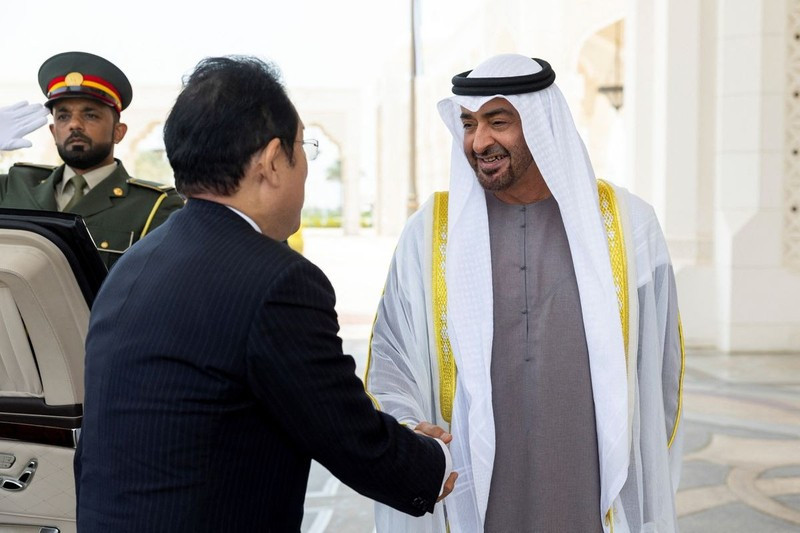This is Prime Minister Kishida Fumio’s first Middle East trip since coming to power in October 2021, with his destinations being Japan’s top partners in the region. The UAE is Japan’s seventh-largest trading partner and has been one of Japan’s key oil suppliers for the past half-century. Bilateral trade turnover between Japan and the UAE reached more than 54.4 billion USD in 2022, up 57.5% compared to 2021.
Meanwhile, about 40% of Japan’s crude oil imports come from Saudi Arabia. The Japan-Saudi Vision 2030, launched in 2016, involves more than 60 ministries and government agencies of both countries and more than 100 projects. Although Qatar is not Tokyo’s top crude oil supplier, most of Japan’s liquefied natural gas is imported from this Middle Eastern country.
Shuji Hosaka, an expert at the Japan Institute of Energy Economics, emphasised that the Middle East is an area of strategic importance to Tokyo as 90% of Japan’s crude oil imports come from this region. In the context of a volatile global energy market, maintaining a stable supply has become even more urgent for Japan. Therefore, one of the important goals of Prime Minister Kishida Fumio’s visit was to achieve commitments to secure energy supplies by tightening ties with the three Middle Eastern oil giants.
Analysts said that the Middle East trip of the head of the Japanese Government has achieved the set goals. Saudi Arabia and the UAE, two countries that supply about 75% of Tokyo’s imported crude oil, remain committed to securing oil supplies for Japan. Japan and Qatar also discussed Qatar’s supply of liquefied natural gas to Japan.
While energy is Japan’s top priority, reducing dependence on oil revenues and diversifying the economy are urgent requirements for the Middle East countries.
Analysts say that many Middle Eastern countries have too long depended on oil exports as their main source of revenue. However, the unpredictable volatility of the price of black gold has increased budgetary pressure on oil exporting countries in the region. To overcome such a challenge, countries in the region, including Saudi Arabia, UAE and Qatar are making efforts to diversify their economies, reduce their dependence on oil and create more jobs in the non-energy economy.
On the occasion of Prime Minister Kishida Fumio’s visit, dozens of cooperation agreements were signed, covering many fields such as healthcare, tourism, education, industry, agriculture, advanced technology, artificial intelligence, transportation, circular economy, and others.
In Saudi Arabia, the head of the Japanese government affirmed that the two countries are transitioning from a mere oil trading relationship to a new global partnership for a non-carbon era. Also on the occasion, Japan and Qatar agreed to upgrade their bilateral relations to Strategic Partnership level.
In addition, Tokyo’s commitment to support the three countries to reduce carbon emissions was also a positive result these countries have obtained from the visit of the Japanese leader. Accordingly, Prime Minister Kishida Fumio expressed his wish to contribute to the Middle East’s transition to sustainable and environmentally friendly energy.
Tokyo will strengthen its cooperation with green energy producing countries, as well as apply advanced decarbonisation technology. Experts said that in the context of the UAE and Saudi Arabia’s efforts to achieve the goal of zero greenhouse gas emissions by 2050 and 2060, respectively, the support of Tokyo is considered very important.
Prime Minister Kishida Fumio’s trip to the Middle East helps Japan reduce its concerns about the risk of energy supply disruptions, and is also an opportunity for Middle Eastern countries to foster economic diversification and green transformation. The trip has brought about a mutually beneficial handshake between Japan and the UAE, Saudi Arabia and Qatar.
















